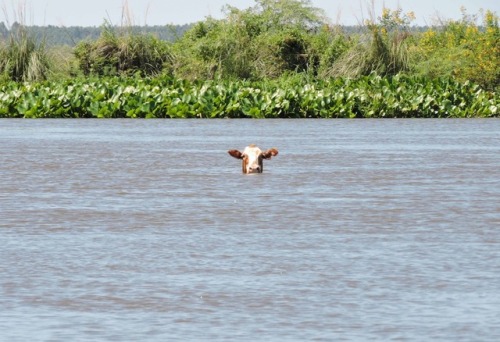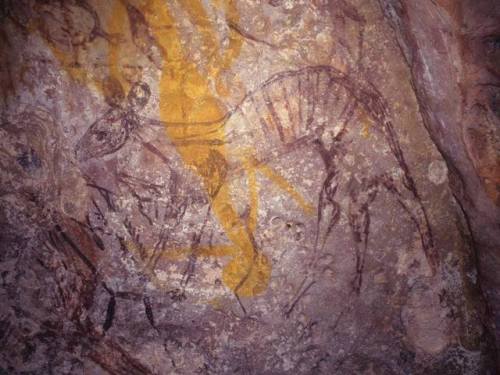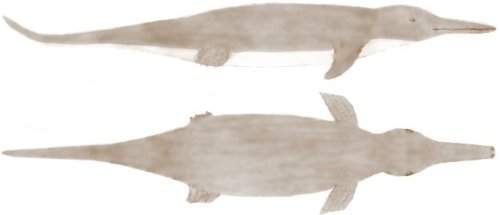Black Dogs -

Black Dogs -
An English ghost, a black dog can be seen as an omen of death and bad luck. They are often described as monstrously large with eyes of flaming red or green, appearing to those who are doomed to die. It is possible for them to have other demeanours though, some black dogs are benevolent and choose to watch over humans, even going as far as to walk women home at night and watch over children while they play. In some stories they are not so friendly, attacking and killing humans where they find them.
A notorious black dog from Suffolk was Black Shuck. This dog burst into a church during a service and killed a man and a boy who were attending church. The claw marks from the dog’s attack can be still seen in the church to this day.
Dartmoor is said to be home to many ghostly black dogs. They inspired the novel The Hound of the Baskervilles after Sir Arthur Conan Doyle spend some time there. The story of the hounds of Dartmoor tells of a huntsman who sold his soul to the devil. When he died he became a ghost that rides through the moors with a pack of black dogs running alongside him.
More Posts from Jackasslope and Others

Bessie (Lake Erie Cow Monster or Lorain Ocean’s Lake Monster)
Described as looking like a cow and having multiple heads in some sightings (yes you read that correctly). Sightings around Lake Erie started in 1907 and have continued ever since with sometimes basic or stranger description of the creature. One of the weirder descriptions was made by two brothers in 1937 as a creature made up of a hundred cows combined into one with arms.

Benjamin, the last Thylacine photographed by Dr. David Fleay in it’s tiny pen at the Beaumaris Zoo in Hobart, December 19th 1933
via reddit

Ever heard of the Black Shuck? It is a large ghostly black dog that is commonly considered to be an omen of death across the British Isles, however at times it has been known to help those that that meet it. I wonder how cute Black Shuck puppies are. 🖤

The Headline That Started It All
It all started in September of 1958 in a remote logging camp nestled near Bluff Creek, California where loggers were being terrorized by what they called “Bigfoot.” Each morning their camp would be covered in 16 inch tracks, and fruit was stolen from their worksites. The workers felt as if they were being watched at all times from within the forests. The strange occurrences even caused some of the workers to quit their jobs. The logging business in Bluff Creek started to slow due to a lack of workers.
Although the local police department ensured the workers and the townsfolk that it was all just an elaborate prank, the workers insisted that this was all too real. In fact some of the logging veterans had even said they’ve experienced strange activity in the forests for years. The activity in the area slowly escalated until Rey Kerr and Leslie Breazeale saw the creature responsible. In the early morning on their way to work the two loggers spotted a bipedal ape run out in front of their vehicle. They described it as an 8 foot tall creature with long arms, broad shoulders and covered in dark fur. After the creature disappeared into the forest they got out only to see the same sized footprints that had been seen all over the logging site.
On October 15, 1958 the Eureka Humbolt Standard released an article titled “Eyewitnesses See Bigfoot.” The article got a lot of attention and the creature known as Bigfoot gained a lot of popularity. The creature would claim worldwide fame 9 years later when Roger Patterson and Bob Gimlin would capture the legendary Bigfoot on film for the first time in the same area.

Kelpie
Creepy horses man, they creep me out just enough to want to paint them.

“A thylacine painted on the ceiling of a rock shelter in Kakadu NP. They have been extinct on the mainland for >3000 years, but the artist obviously knew them in life.” - Sam Sweet
Source: Sam Sweet

These sketches were drawn by Owen Burnham of a globster known as Gambo. The 15 year old measured the strange creature on June 12, 1983, when he found it on a beach in Islamic Republic of The Gambia. It measured to be “15 - 16 feet long”. While some believed the creature to be a dolphin, it had two nostrils at the tip of its snout, which dolphins do not. The body was not DNA tested as Burnham claims he did not think to take samples until he realized he could not identify the creature in any books.
-
 heckcareoxytwit liked this · 1 year ago
heckcareoxytwit liked this · 1 year ago -
 recycled-stardust liked this · 1 year ago
recycled-stardust liked this · 1 year ago -
 cyarestar liked this · 1 year ago
cyarestar liked this · 1 year ago -
 dogyip liked this · 1 year ago
dogyip liked this · 1 year ago -
 dogmandotcom reblogged this · 1 year ago
dogmandotcom reblogged this · 1 year ago -
 dogcrate reblogged this · 1 year ago
dogcrate reblogged this · 1 year ago -
 lizardsfromspace liked this · 1 year ago
lizardsfromspace liked this · 1 year ago -
 khaos-bringer liked this · 2 years ago
khaos-bringer liked this · 2 years ago -
 limitlessindu liked this · 4 years ago
limitlessindu liked this · 4 years ago -
 privatefire reblogged this · 4 years ago
privatefire reblogged this · 4 years ago -
 thespacehound reblogged this · 5 years ago
thespacehound reblogged this · 5 years ago -
 leggeteconme liked this · 5 years ago
leggeteconme liked this · 5 years ago -
 unseelieships liked this · 5 years ago
unseelieships liked this · 5 years ago -
 undinesea liked this · 5 years ago
undinesea liked this · 5 years ago -
 sneez reblogged this · 5 years ago
sneez reblogged this · 5 years ago -
 cydonian-mystery liked this · 5 years ago
cydonian-mystery liked this · 5 years ago -
 mistressofthebats reblogged this · 5 years ago
mistressofthebats reblogged this · 5 years ago -
 mistressofthebats liked this · 5 years ago
mistressofthebats liked this · 5 years ago -
 dragoncreator312 liked this · 5 years ago
dragoncreator312 liked this · 5 years ago -
 dailydoseoflifelove-blog liked this · 5 years ago
dailydoseoflifelove-blog liked this · 5 years ago -
 comfynecromancer reblogged this · 5 years ago
comfynecromancer reblogged this · 5 years ago -
 ukaknir reblogged this · 5 years ago
ukaknir reblogged this · 5 years ago -
 thecosmicjackalope reblogged this · 5 years ago
thecosmicjackalope reblogged this · 5 years ago -
 thecosmicjackalope liked this · 5 years ago
thecosmicjackalope liked this · 5 years ago -
 teramelle liked this · 5 years ago
teramelle liked this · 5 years ago -
 fawninthewinter liked this · 5 years ago
fawninthewinter liked this · 5 years ago -
 lunarasphodel liked this · 5 years ago
lunarasphodel liked this · 5 years ago -
 luvyg reblogged this · 5 years ago
luvyg reblogged this · 5 years ago -
 luvyg liked this · 5 years ago
luvyg liked this · 5 years ago -
 khonsu00 liked this · 5 years ago
khonsu00 liked this · 5 years ago -
 taletreader liked this · 5 years ago
taletreader liked this · 5 years ago -
 bog-hog-blog liked this · 5 years ago
bog-hog-blog liked this · 5 years ago -
 cryptgates reblogged this · 5 years ago
cryptgates reblogged this · 5 years ago -
 cryptgates liked this · 5 years ago
cryptgates liked this · 5 years ago -
 mosswolf7 liked this · 5 years ago
mosswolf7 liked this · 5 years ago -
 vickie526a reblogged this · 5 years ago
vickie526a reblogged this · 5 years ago -
 vickie526a liked this · 5 years ago
vickie526a liked this · 5 years ago -
 togetherweneversaygoodbye liked this · 5 years ago
togetherweneversaygoodbye liked this · 5 years ago









